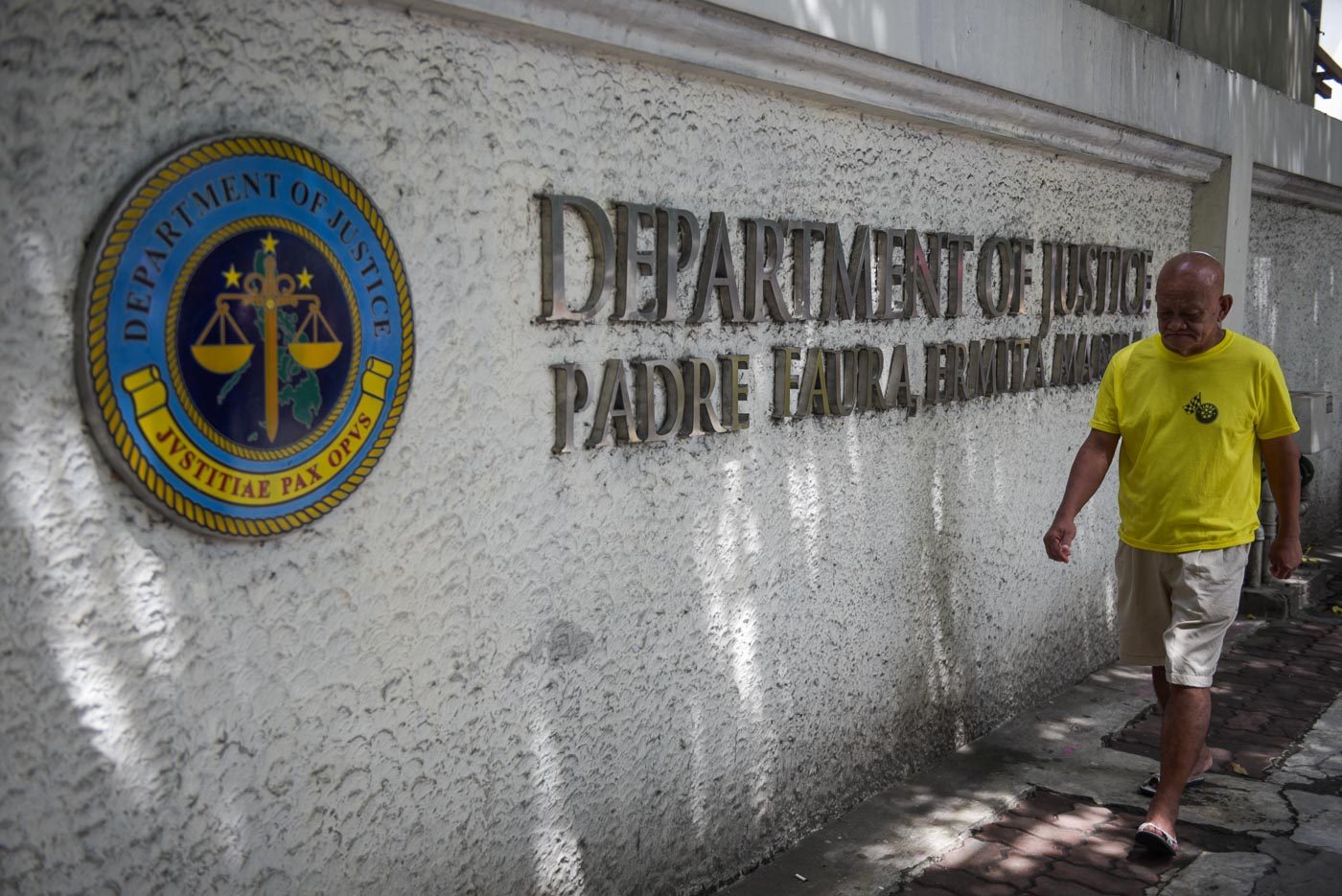SUMMARY
This is AI generated summarization, which may have errors. For context, always refer to the full article.

MANILA, Philippines – Prosecutors’ offices will also physically close down next week, with officers and staff to report for work only when called in for urgent matters, as Luzon continues to be on lockdown to contain the novel coronavirus.
Justice Secretary Menardo Guevarra confirmed this late Friday night, March 20, saying they had informed prosecutors in advance before issuing a formal order.
“The new directive to Department of Justice (DOJ) prosecutors was prompted by the Supreme Court (SC) administrative order issued today. We shall release a formal department circular early next week,” said Guevarra.
“We leave it to the prosecution offices to devise their own ways; use the official vehicle, private car pool, bikes, etc. We all have to be creative these days,” he added, referring to times when the prosecutors and their staff would have to report for work.
The SC announced on Friday afternoon that it will physicall close all courts nationwide, and will provide hotlines so parties may call in their concerns. If the concern is deemed urgent, a judge and court staff will report for work.
The SC earlier said that matters of bail, habeas corpus, and other concerns related to liberty are treated as urgent.
The DOJ kept inquest offices open precisely to provide legal remedies during the lockdown.
It’s unclear yet what the DOJ guidelines will be with the physical closure.
With this, it means there are no prosecutors and courts immediately available during the lockdown, even when people are arrested without warrant for either breaking curfews or other rules of the lockdown.
Guevarra on Friday stood firm that police may do warrantless arrests during the lockdown, with several laws as basis, including the broad Republic Act. No 11332 or the Mandatory Reporting of Notifiable Diseases and Health Events of Public Health Concern Act which punishes “non-cooperation” during a health emergency.
Guevarra was asked Friday whether punitive measures against violators were the right call, given the physical closure of the offices that provide legal remedies to those who will be apprehended. In Manila, over 20 people had to spend two days in jail because there was no staff.
“The matter of making arrests lies with our law enforcement agents. So your question should be addressed to the Police Chief or to (DILG Secretary Eduardo) Año. The DOJ has its ways of dealing with the matter,” said Guevarra.
“I assure you that your Secretary of Justice tempers the rigor of the law with human compassion,” added Guevarra.
In a series of tweets, former SC spokesperson Ted Te said “the SC should consider keeping the courts open virtually instead of closed except for the most urgent cases.”
“To avoid docket congestion, the Interim Rules for Virtual Courts may provide for bail on recognizance and a moratorium on the filing and litigation of civil complaints except for Habeas Corpus and Amparo and prioritize bail posting with templated orders,” said Te. – Rappler.com
Add a comment
How does this make you feel?
There are no comments yet. Add your comment to start the conversation.